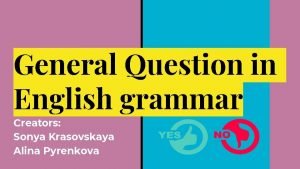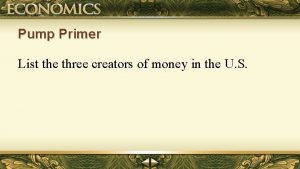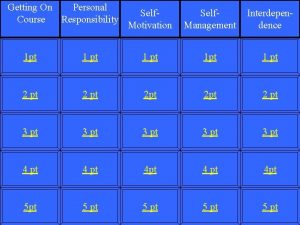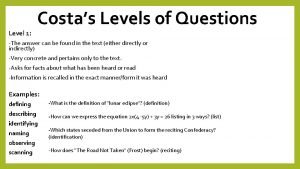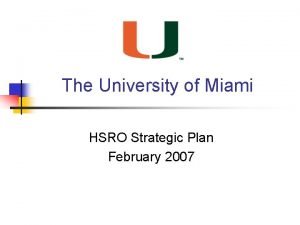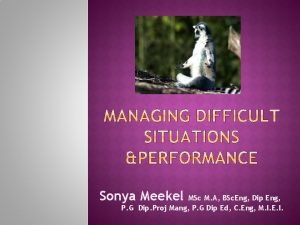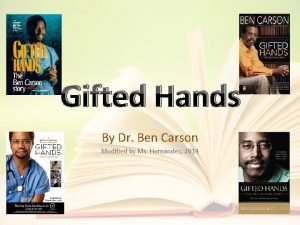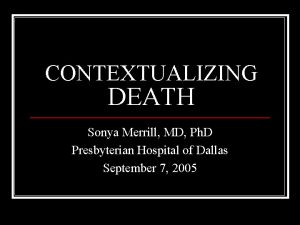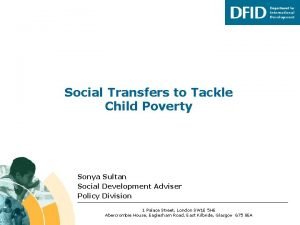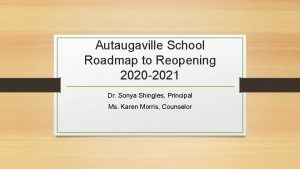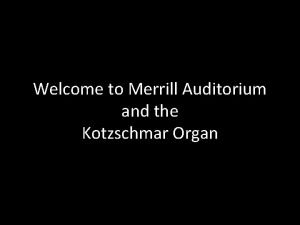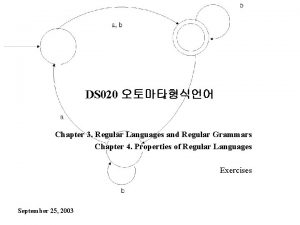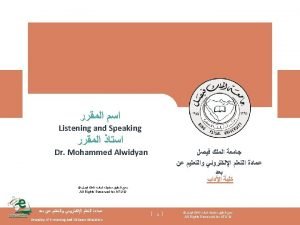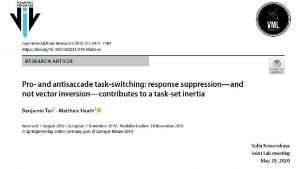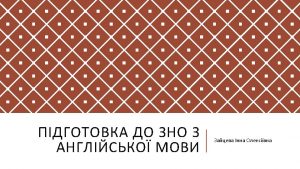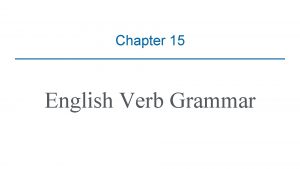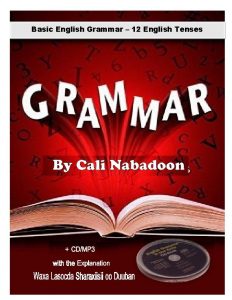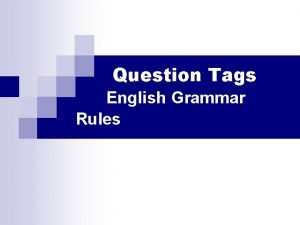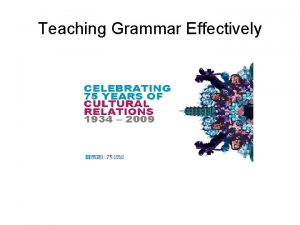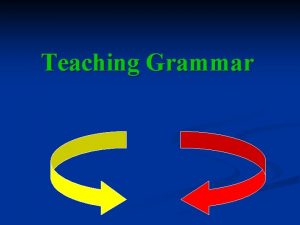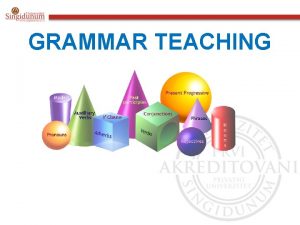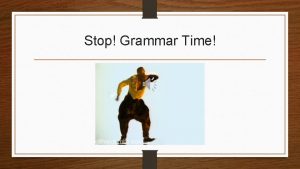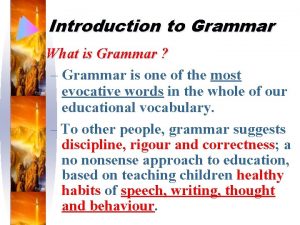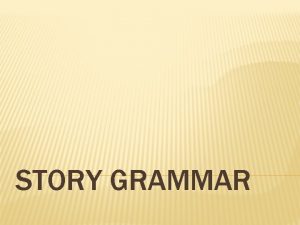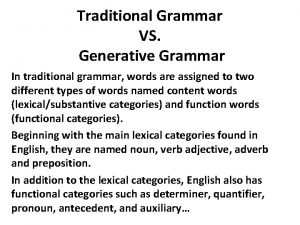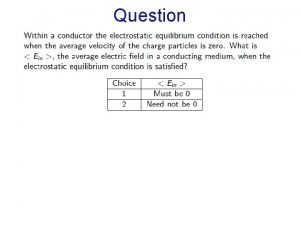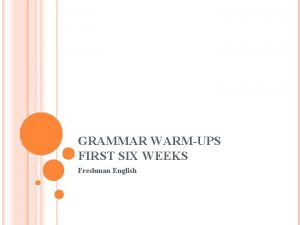General Question in English grammar Creators Sonya Krasovskaya



























- Slides: 27

General Question in English grammar Creators: Sonya Krasovskaya Alina Pyrenkova

Presentation ● The answer may be the words "yes" and "no“. ● In this type of interrogative sentences, the word order is reversed. It begins with auxiliary or modal verbs. For example: ❑ Does she play the piano and the guitar? ❑ Is the pupil reading the text? ❑ Can your baby swim?

There are 3 variants for the general question: 1) With the help of auxiliary verbs � Present Simple Tense: do/does They go to school - Do they go to school? � Past Simple Tense: did He read this book - Did he read this book? � Future Simple Tense: will We will go to the park - Will we go to the park?

Question 2) With the verb to be ● Present Simple Tense: am, are, is This girl is beautiful - Is this girl beautiful? ● Past Simple Tense: was, were He was at the cinema- Was he at the cinema? ● Future Simple Tense: will be He will be a doctor- Will he be a doctor?

3) With modal verbs: Can/could; must; may/might etc. ● Can he open a window? ● Should they read it? ● May she wait here?

Short Answers A short affirmative English answer to a general question consists of: � "Yes", � comma after it � pronouns relevant to the topic � auxiliary verb (most often the same as in the question). Translating all this construction, it is enough to limit one word “yes”. For example: Is it starting to snow outdoors? – Yes, it is.

A short negative English response to a common question consists of: �"No", �comma after it, �pronouns corresponding to the subject �auxiliary verb (most often it is the same as in the question), �negative particle "not". In a negative answer, both complete and abbreviated negative verb forms can be used. Translation also serves as a simple "no. “ For example: Did Robin live there? - No, he did not (No, he didn't. )

Exercise № 1 Give short answers to these general questions: ● 1. Did you go to the country last summer? ● 2. Did you go for a picnic last Sunday? ● 3. Can you see the sun now? ● 4. Can you see the stars now? ● 5. Does your pet sleep at night?

Exercise № 2 Formulate a general question: 1) John was busy yesterday evening (Today) 2) I can play football very well (Volley-ball) 3) Spanish is spoken in Spain (Latin America) 4) She will be a good teacher (Doctor) 5) Jane visited many countries (Cities) For example: -Jane doesn`t like lemon (apples) -Does Jane like apples?

Exercise № 2 (Key) 1) 2) 3) 4) 5) Is John busy tonight? Can you play volley-ball very well? Is Spanish spoken in Latin America? Will she be a good doctor? Did Jane visit many cities?

Exercise № 3 Make general questions: For example: Mary grows beautiful flowers in the garden - Does Mary grow beautiful flowers in the garden? 1) John was tired after work. 2) We live in a small town. 3) My parents got married in Paris. 4) The party will start in time. 5) The dogs are sleeping.

Exercise № 3 (Key) 1. Was John tired after work? 2. Do we live in a small town? 3. Has summer started at last? 4. Have they already left? 5. Did your parents get married in Paris?

Exercise № 4 Fill in the gaps with the correct question word. Your options are Am, Is, Are, Do, and Does. 1. ____ you have a brother? 2. ____ you a teacher? 3. _____ your sister live with you? 4. ______ she your friend? 5. ____Mary work on Friday? 6. _____ you like pizza? 7. _____ you tired today? 8. _____ your parents from Egypt? 9. ____ this your watch? 10. _____ I in this class?

Exercise № 4 (Key) 1. Do you have a brother? 2. Are you a teacher? 3. Does your sister live with you? 4. Is she your friend? 5. Does Mary work on Friday? 6. Do you like pizza? 7. Are you tired today? 8. Are your parents from Egypt? 9. Is this your watch? 10. Am I in this class?

Exercise № 5 Modify the sentences so that they become interrogative. Make general questions. ● The rabbit is hopping now. ● Children are swimming now. ● I am reading a book now. ● Dave is riding his bike now. ● We are planting some seeds now. ● She is giving me a rubber now.

Exercise № 5 (Key) 1. 2. 3. 4. 5. 6. Is the rabbit hopping now? Are the children swimming now? Are you reading now? Is Dave riding a book now? Are they planting some seeds now? Is she giving you a rubber now?

Exercise № 6 Answer the questions and fill in the gaps. 1. Is Tom your friend ? - Yes, ______. 2. Is she your sister ? - No, ____. 3. Is this your bike ? - Yes, _______. 4. Are you Italian ? - Yes, _____. 5. Are they your parents ? - Yes, _____. 6. Can he play tennis ? - Yes, _____. 7. Can the children swim ? - No, ____. 8. Do you live in Liverpool ? - No, _____. 9. Do you like apples ? - Yes, _____. 10. Does John go to school ? - Yes, ____.

Exercise № 6 (Key) Is Tom your friend ? - Yes, he is. 2. Is she your sister ? - No, she isn’t. 3. Is this your bike ? - Yes, it is. 4. Are you Italian ? - Yes, I’m. 5. Are they your parents ? - Yes, they are. 6. Can he play tennis ? - Yes, he can. 7. Can the children swim ? - No, they can’t. 8. Do you live in Liverpool ? - No, I don’t. 9. Do you like apples ? - Yes, I do. 10. Does John go to school ? - Yes, he does. 1.

Exercise № 7 Do or Does? 1. ____ Petra live at home? 2. ____ you live in this house? 3. ____ Sean and Jake ride their bikes in the village? 4. ____ they play in the street? 5. ____ Susan's brother work in London? 6. ____ bears like honey? 7. ____ we own a car? 8. ____ your sister like Mozart? 9. ____ Sean play football? 10. ____I have to clean my room?

Exercise № 7 (Key) 1. Does Petra live at home? 2. Do you live in this house? 3. Do Sean and Jake ride their bikes in the village? 4. Do they play in the street? 5. Does Susan`s brother work in London? 6. Do bears like honey? 7. Do we own a car? 8. Does your sister like Mozart? 9. Does Sean play football? 10. Do i have to clean my room?


Exercise № 8 (Key) 1) Did you go to school? 2) Is she in a park? 3) Can you switch off the music? 4) Are they clever? 5) Does she like roses? 6) Should I call him? 7) Must she do it? 8) Will we help him?

Exercise № 9 Ask general questions and give short answers to them. Pay attention to the tense form of the verb in the questions. 1. Jane eats lunch at the canteen every day. (at school? ) 2. I didn't sleep well last night. (last week? ) 3. I am studying my grammar book now. (learning the rules? ) 4. The children weren't watching TV last night. (doing their homework? ) 5. It wasn't cold yesterday. (the day before yesterday? ) 6. He won't be at home tonight. (tomorrow? ) 7. She can't play the piano. (the guitar? ) 8. They have visited many places. (the picture gallery? ) 9. He was given more time for the test. (you? ) 10. English is spoken in Australia. (Canada? ) For example: -I don't know your sister. (brother? ) -Do you know my brother? – No, I don't.

Exercise № 9 (Key) 1. 2. 3. 4. Does Jane eat lunch every day at school? Did you sleep well last week? Are you learning the rules now? Were the children doing their homework last night? 5. Was it cold the day before yesterday? 6. Will he be at home tomorrow? 7. Can she play the guitar? 8. Have they visited the picture gallery? 9. Were you given more time for the rest? 10. Is English spoken in Canada?

Video If you want to get more information, watch this video! : )

Online test Please check your knowledge and pass this test! Good luck! ➢ https: //onlinetestpad. com/ru/test/241403 -general-questions-in-present-simple

Thank you for your attention!
 The creators of grammar answers
The creators of grammar answers Language windows 10
Language windows 10 Uml creators
Uml creators Who are the three creators of money in the united states
Who are the three creators of money in the united states Creators spend as much time as possible in quadrant
Creators spend as much time as possible in quadrant What is a level 1 question
What is a level 1 question University of miami strategic plan
University of miami strategic plan Sonya meekel
Sonya meekel Dr. sonya merrill
Dr. sonya merrill Sonya emery
Sonya emery Curtis carson sonya carson
Curtis carson sonya carson Dilbert certification
Dilbert certification Nsw information management framework
Nsw information management framework Dr sonya dominguez
Dr sonya dominguez Sonya merrill
Sonya merrill Sonya sultan
Sonya sultan Sonya shingles
Sonya shingles Language in french
Language in french Dr sonya merrill
Dr sonya merrill Jmu internship abroad
Jmu internship abroad Sonya campion
Sonya campion Right linear grammar
Right linear grammar Advantages and disadvantages of traditional grammar
Advantages and disadvantages of traditional grammar Chomsky hierarchy of grammars
Chomsky hierarchy of grammars Right linear grammar
Right linear grammar Question word simple present
Question word simple present Advantages and disadvantages of probing questions
Advantages and disadvantages of probing questions Contoh paraphrase
Contoh paraphrase
